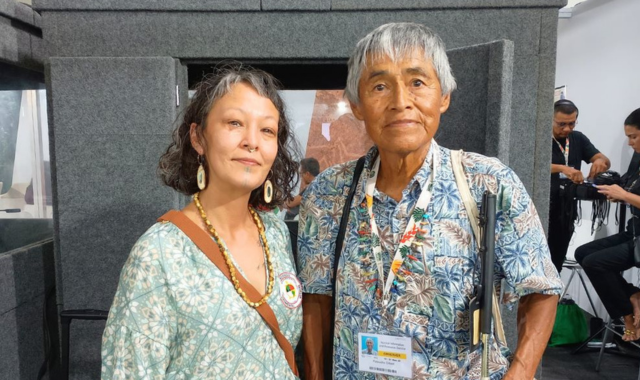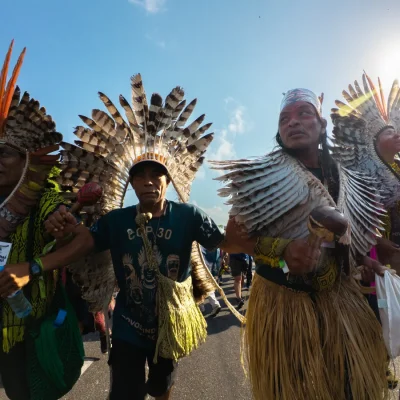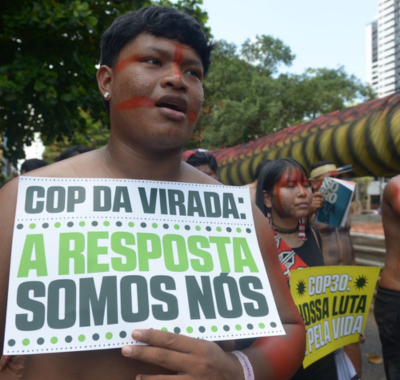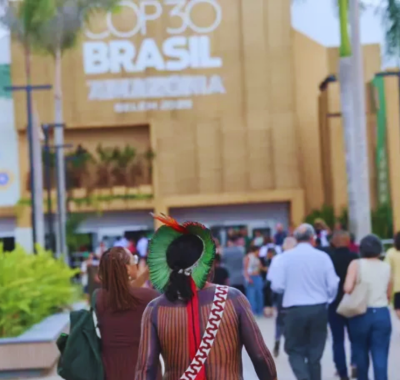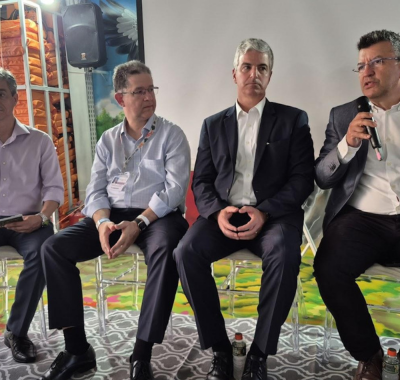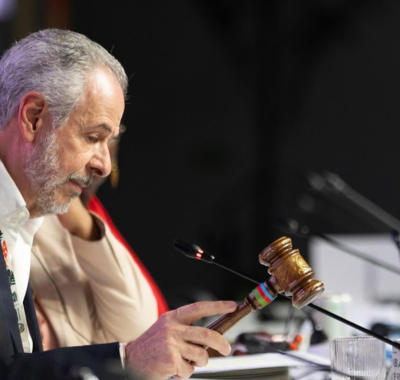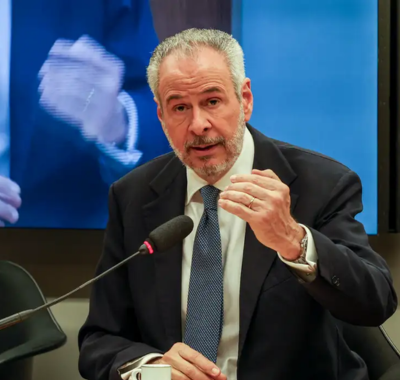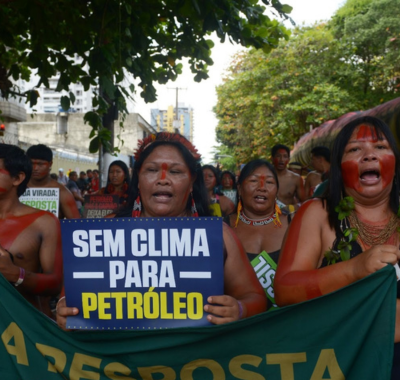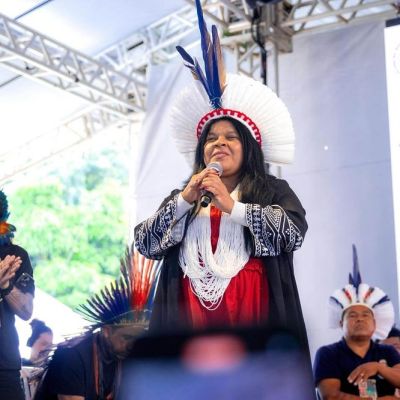At COP30, Aakaluk and other leaders of Indigenous Peoples from the Global North question geoengineering solutions and lobbying by the nuclear energy industry
By Micael Olegário
(From Belém, Pará, Brazil) – “We are witnessing coastal erosion and the sinking of our lands and forests.” The testimony of Aakaluk, the native name of Adrienne La-Ree Blatchford, 44, highlights how the climate crisis is a real threat to existence in various parts of the planet. A member of the Inupiaq and Yup’ik Peoples, Aakaluk lives in Unalakleet, a small coastal town in the Nome district of Alaska, United States.
Alaska is one of the places on the planet most threatened by the accelerated melting of glaciers, a direct consequence of the average increase in global temperature and the exploitation of nature by capitalism. The loss of the frozen layer called permafrost releases greenhouse gases into the atmosphere, causing floods and directly affecting well-being in places like Unalakleet.
The community is accessible only by plane and is located on the shores of the Bering Sea, near the Arctic Ocean, with an estimated population of about 748 people. Salmon and red king crab fishing are among the main activities in the area, which is home to communities of the Athabascan and Inupiaq Peoples.
The impacts feed back into each other and also include changes in weather patterns. “We have seen storms that are sometimes early or late, as well as the absence of sea ice on the coast, which protected our shores and our lands from floods and erosion caused by the increased intensity of storms,” describes Aakaluk.
Another element of this climate chaos equation in the region is the contamination caused by petrochemical and extractive industries. “When these pollutants are emitted through industrialization, they are carried to the north, where they get trapped and accumulate. They bioaccumulate in our food and resources. We are seeing mercury infiltrating our waters due to the melting of the permafrost,” she explains.
In Belém, Aakaluk is participating in COP30 (30th United Nations Climate Change Conference) on behalf of the Indigenous Environmental Network (IEN). The organization, also known as the Indigenous Educational Network of Turtle Island, works to defend Indigenous and traditional Peoples around the world.
Trump and denialism
As the largest historical emitter of fossil fuels and, consequently, the leading nation responsible for climate change, the United States has undergone a denialist shift under Donald Trump’s administration. In addition, the US president has stated his intention to encourage the expansion of oil exploration in the country.
Aakaluk does not hide her frustration with the situation in the United States, but she emphasizes the importance of combating these narratives. She also criticizes proposals based on geoengineering as a new form of colonialism and something that disregards the symbiotic relationship that traditional Peoples have with their territories.
“We, as Indigenous Peoples, know that manipulation will only cause more damage and more destruction. Our traditional diets are how we balance and maintain our mental, physical, and spiritual health, and without them, we are truly displaced, not only from our homes but also from our ways of life,” said Aakaluk.
The community leader and activist also warns of the importance of combining adaptation actions while continuing to hold industries accountable for their ongoing pollution and profit-making as usual. “Our expectation at COP is to keep showing resistance in a way that drives a just transition led by Indigenous Peoples.” To this end, she mentions the warm welcome and alliances with Brazilian Indigenous populations.
Nuclear energy
A member of the Acoma People, Petuuche Gilbert is another representative of the Indigenous Peoples of the Global North at COP30. The Acoma People inhabit territories in the southwestern United States, in New Mexico. The state was the first place in the world where nuclear tests were conducted, in July 1945, during World War II.
“Seventy-five years later, people are still affected by the first bomb tested. They are still victims of radiation,” points out the Acoma leader, contesting the lies of the nuclear lobby. Petuuche denounced the greenwashing of the nuclear energy industry, which tries to sell itself as carbon neutral, that is, it constructs narratives that its impacts on the planet can be offset.
Petuuche also mentioned concerns about the possibilities for energy expansion in Brazil. For him, the justification for peaceful uses of nuclear energy does not hold up. “It must be understood that when you build a nuclear reactor, you can use the plutonium from that reactor to make atomic bombs,” he recalls.
During the Cold War, nuclear energy raised fears about the survival of humanity. Now, the climate crisis exposes the inadequacy of Western and modern models of civilization as a real risk to human existence and its relationship with more-than-human beings (rivers, animals, plants, and forests).
“If humans were to disappear today, the Earth would thrive. But it would also miss our presence. Our relatives in the sky, in the water, and on the land would miss our presence,” says Aakaluk, recalling that the answer to the climate crisis has been known and practiced for thousands of years by Indigenous Peoples.
This report was produced by #Colabora – Jornalismo Sustentável, through the Collaborative Socio-environmental Coverage of COP 30. Read the original report here.
Translated by Diego Lopes/Verso Tradutores

